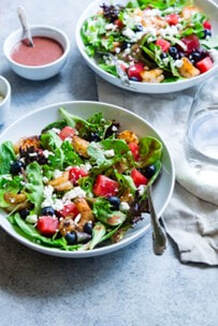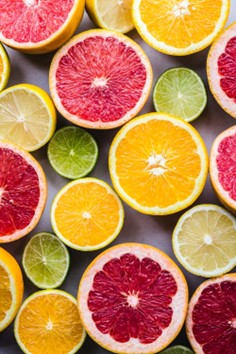|
By Heather Gadalla I’m sure you’ve all heard the expression, “food is fuel.” Not only does the energy we get from food allow us to perform our daily tasks, we may even be able to help our brain perform better with a careful selection of study snacks. Many studies have shown that certain foods may be linked with various cognitive outcomes, which students may be able to use to help during study sessions. Below, we’ve split up the foods by cognitive outcome, so you can see which foods are linked with better focus, memory, or stress management. We hope you find these suggestions useful! Focus/Concentration As students, we all want to maximize our focus when we’re studying. Fortunately, there are some foods that have been scientifically shown to be associated with improving concentration! First, caffeinated beverages such as coffee and tea have been linked to improved focus when consumed in appropriate amounts. If you have too much caffeine, you may give yourself the jitters instead, so be careful not to overdo it! Don’t worry if you’re not a coffee person; there are other options you can try to boost your concentration during a study session. One of the most well-known study snacks for fuelling your brain is dark chocolate. Eating a few pieces of dark chocolate before a study session may improve your working memory while learning new material, and it tastes delicious. Dark chocolate is high in a chemical called flavanol, which may reduce blood pressure and increase blood flow – both of which can improve cognitive performance. Another food linked to better focus is the avocado. Researchers believe this is due to the presence of healthy fats in avocados which are also beneficial for your heart, especially in comparison to the fats in butter or cheese – so, you can make yourself some avocado toast to snack on while you study! Lastly, whole grains, which steadily release glucose into your bloodstream, can help you avoid the energy crash typically associated with refined grains. You can find whole grains in various foods such as brown rice, popcorn, and oatmeal. Just like avocados, whole grains have also been linked to better heart health, so you can double up on the benefits with these study snacks! Coffee and dark chocolate are two of the foods that may help you with concentrating during intense study sessions. Credit: NordWood Themes from Unsplash Memory and Cognitive Function If you have a big test coming up, you may be more interested in foods that help you better retain information. Luckily, we have a lot of recommendations for improving memory and cognitive function that can be easy study snacks as well! A common snack idea for students is a small bowl of nuts; it turns out that walnuts, in particular, have been associated with better memory in mice. This is thought to be due to an association between walnut extract and the prevention of certain types of cellular oxidative stress and cell death. Just be sure to eat them in moderation. Even though walnuts contain mostly healthy fats (which makes them a better source of fats than other snack foods), this also makes them very calorie-dense. Another snack idea is a handful of blueberries. Blueberries may have tangible effects on memory in older adults, likely as a result of anthocyanin, an anti-inflammatory and antioxidant compound that also gives blueberries their color. Blueberries are a delicious snack and have many other health benefits, so don’t hesitate to reward yourself with a bowl of these delicious berries! If you don’t like walnuts or blueberries, you could snack on a handful of pumpkin seeds, also called pepitas.They contain high levels of minerals, like magnesium, which are thought to contribute to overall brain health and memory. Snacking on foods rich in vitamin K can boost your brain as well. Vitamin K has an important role in the formation of sphingolipids, which are lipids that play critical roles in brain function. Some foods containing vitamin K include broccoli, spinach, and kale, which may not sound like a great snack on their own, but could be put into a salad or baked into kale chips! This salad combines several elements that might improve your memory, including walnuts, leafy greens, and blueberries! Credit: Taylor Kisner from Unsplash Stress Management During a study session, it’s important to regulate stress so you can think clearly. Certain foods have been shown to reduce stress levels, so if you find yourself prone to feeling anxious when you study, give some of these foods a try! The key ingredient is vitamin C. Luckily, this vitamin is found in a lot of delicious fruits, such as oranges, grapefruits, bell peppers, blackcurrants, and strawberries. Research has found that being deficient in vitamin C has many negative effects on the brain, and that higher levels of vitamin C are linked with lower feelings of stress and a less intense physiological response to stressful environments. If you’re feeling stressed, try making yourself a nice fruit bowl and reap the benefits of vitamin C! The chemicals in pumpkin seeds, which we talked about earlier as being helpful for cognitive function, also play a role in stress management. Pumpkin seeds contain a high amount of magnesium, which may reduce stress and anxiety. These fruits contain lots of vitamin C which is thought to relate to helping you manage your response to stress. Credit: Bruna Branco from Unsplash Keep in mind that these foods may not have the same effect on every individual or have an obvious effect right away, but eating healthy foods has consistently been shown to make you feel better and more energized. Of course, enjoy everything in moderation and be sure to prioritize any existing medical conditions, like allergies or diet-related chronic diseases, when considering these recommended foods. If you’re feeling unusually fatigued or are just looking to learn more about how your diet influences how you feel, it’s also a good idea to check in with your doctor. Happy snacking! References
Heather GadallaHeather is an undergraduate student studying life sciences at the University of Toronto. As a blogger for Scientista, she hopes to help forward their mission of empowering campus women in STEM. Outside of classes, Heather enjoys skiing, dancing, cooking, and spending time with her pets.
0 Comments
Your comment will be posted after it is approved.
Leave a Reply. |
LIFESTYLE BLOGRead our lifestyle advice, written exclusively for pre-professional women in science and engineering. From advice about fashion, work and family balance, self, wellness, and money, we've got you covered! |
The Scientista Foundation, Inc. All Rights Reserved © 2011-2021 | Based in NY | [email protected]
The Network for Pre-Professional Women in Science and Engineering
The Scientista Foundation is a registered 501(c)(3) -- Donate!
The Network for Pre-Professional Women in Science and Engineering
The Scientista Foundation is a registered 501(c)(3) -- Donate!



